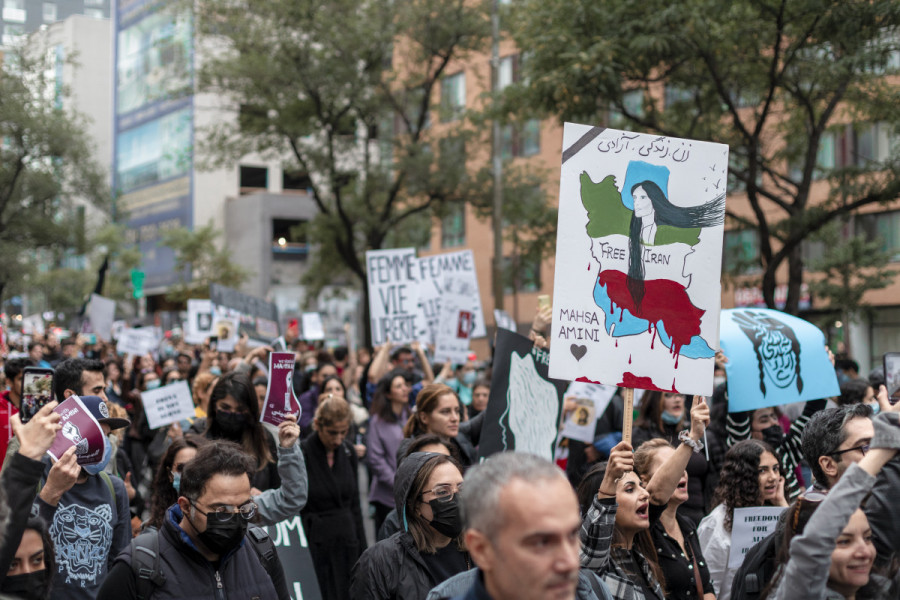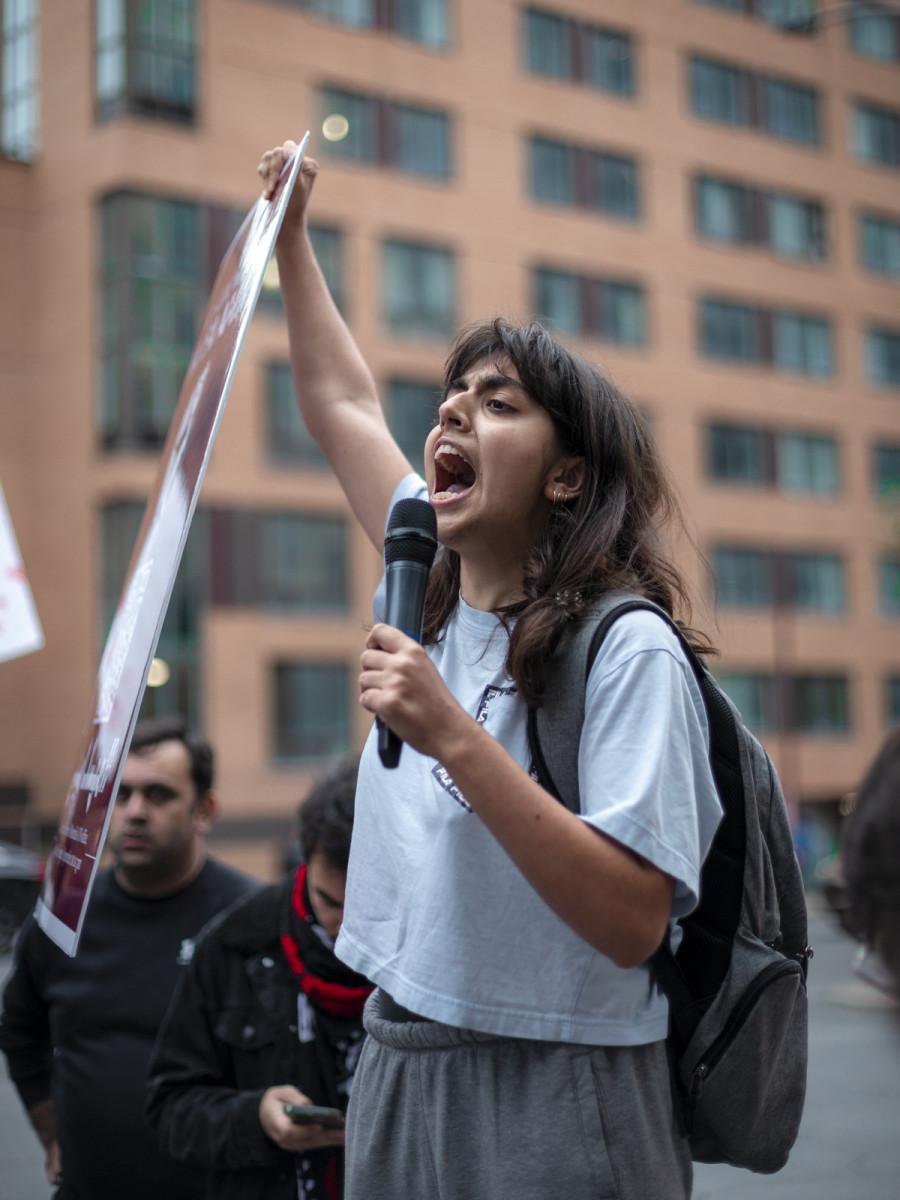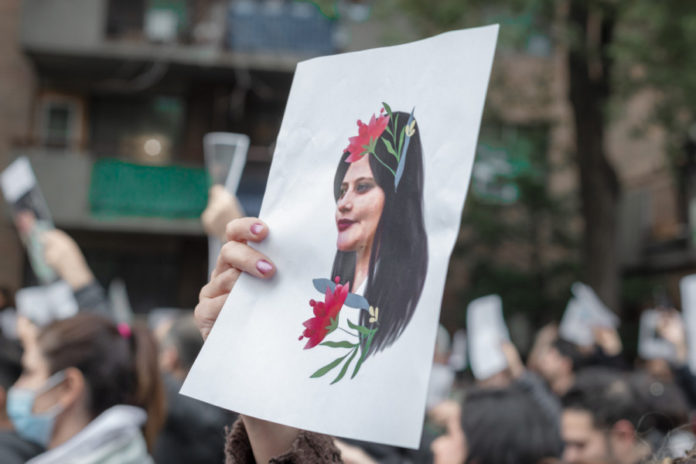MONTREAL (CUP) — “Jîn! Jîyan! Âzadi!” — Kurdish for “Women! Life! Freedom!”— was chanted by hundreds of Montrealers as they marched along René Levesque Blvd. on Sept. 21.
Demonstrators called for increased media coverage of the recent protests that have erupted in Iran since its police allegedly killed 22-year-old Mahsa Zhina Amini. Amini was detained by the so-called ‘morality police’ in Tehran on Sept. 13 for not wearing hijab according to the standards of the Islamic Republic of Iran.
Police and state officials claimed that Amini suffered a sudden heart attack in their custody, and was then transferred to the hospital where she died on Sept. 16. However, witnesses and other detainees said she was severely beaten in custody, and CT scans that were leaked to London-based news site Iran International showed “severe trauma to the skull.”
Amini’s death sparked widespread condemnation by Iranians, drawing protests in 80 cities across the country. Videos circulating on social media show people ripping and burning their hijabs, and setting fire to police cars. Ebrahim Raisi, president of Iran, has since ordered a crackdown and declared “decisive action” on the protests.

“In my country, men and women are fighting against the armed forces of the government empty-handed,” said demonstrator Diana, who did not want to provide her last name for her family’s safety, to the crowd.
“And now, we all shout together—all the Iranians—freedom for Iran!”
Among the crowd were young Iranians, many of whom have family members currently living in Iran. They feared that giving their full names would endanger their family, but felt compelled to speak out against the crackdown nonetheless.
“The internet has been cut off in a lot of the parts of the country, and people need to hear about it,” said Saba, who also did not want to give her last name. “We’re assuming there are mass murders going on, that the government’s shooting people in protests.”
Reports of internet restrictions in recent days have been a cause for concern. In November 2019, the Iranian government announced a significant increase in fuel prices, which resulted in country-wide protests similar to the movement in recent days.
Under orders by Supreme Leader Ayatollah Ali Khamenei, the country fell into a week-long internet blackout.
Amnesty International said in a summary of its investigation into the 2019 blackout that “an unknown amount of evidence of crimes and serious human rights violations was lost as a result of the shutdown.”
Still, the investigation found that at least 323 people were killed within the five days of the blackout, and Reuters reported that “about 1,500 people were killed during less than two weeks of unrest.”
The crowd marched from the Guy-Favreau Complex to CBC Montreal headquarters, demanding wider coverage of the unrest in Iran. Steps from the entrance of CBC’s offices, an Iranian Canadian woman cut off sections of her hair as the sun was setting behind a silent crowd.
“I want non-Iranians to speak to the media and amplify our voices to the rest of the world,” said Hengameh, who chose not to disclose her full name. She was attending the demonstration alongside her two children, both of whom are students at Concordia.
“I hope the Canadian media will be our voices, and [report] the suffering of our people.”


Protests continued in Montreal, where hundreds more took to the streets outside of Concordia University’s Sir George Williams campus. The week’s demonstrations were organized in part by the Iranian Student Association of Concordia University.
The ISACU warned of the crackdowns on protests in Iran, saying that the government’s restriction of internet access could result in a potential “bloodbath inside the country.”
“No more silence, no more lies! We will not be victimized!” chanted Banafsheh of the ISACU as she led the crowd. “Say her name, say her name: Mahsa Amini!”
This article was shared via the CUP Wire, maintained by the Canadian University Press.

